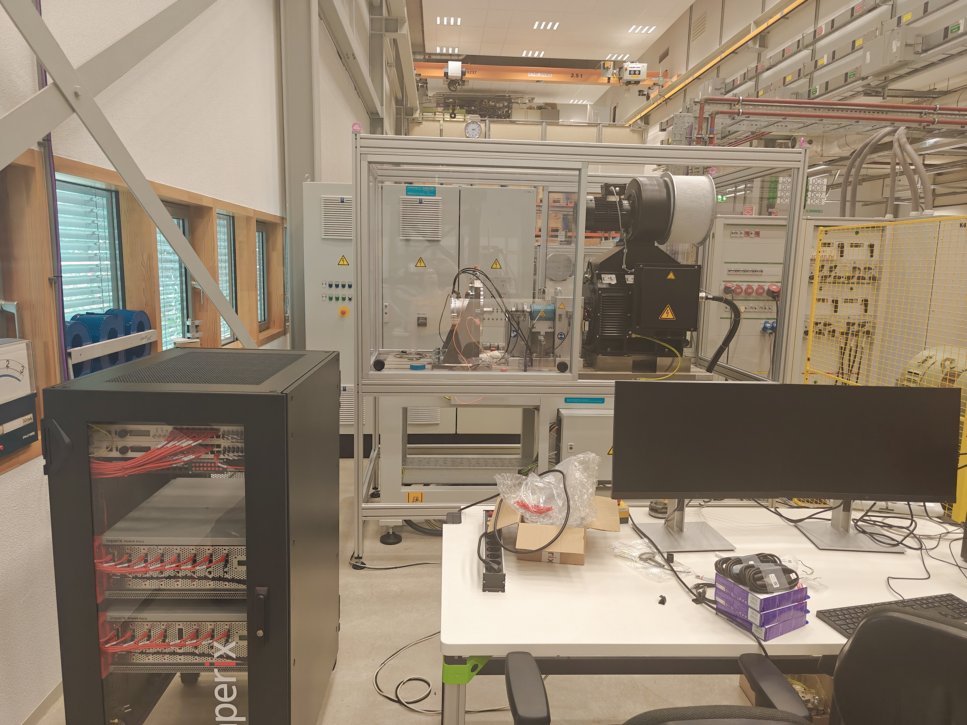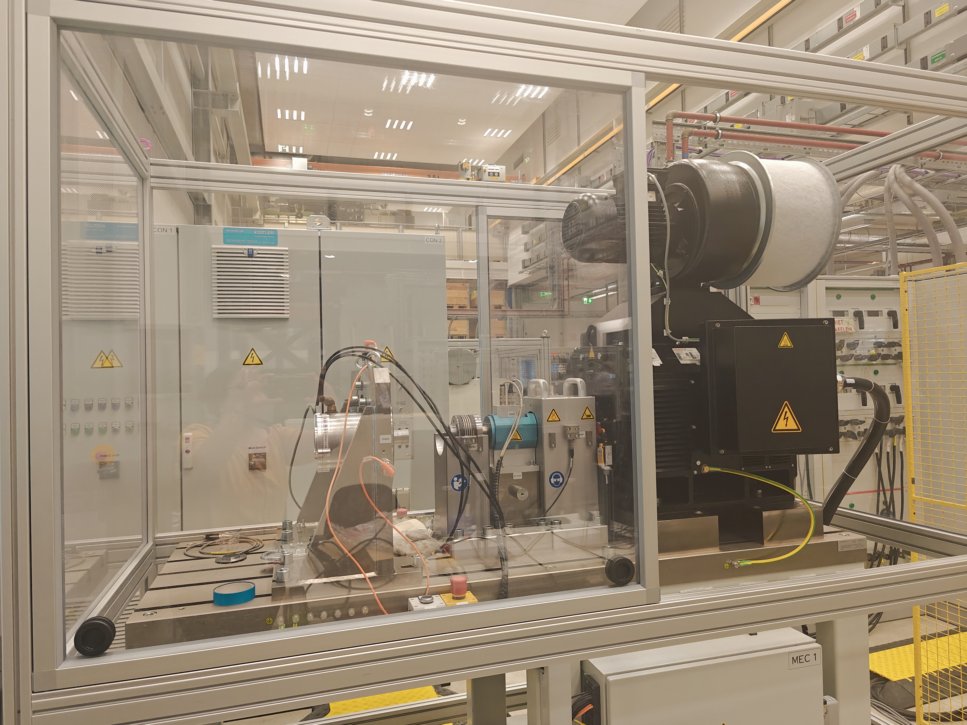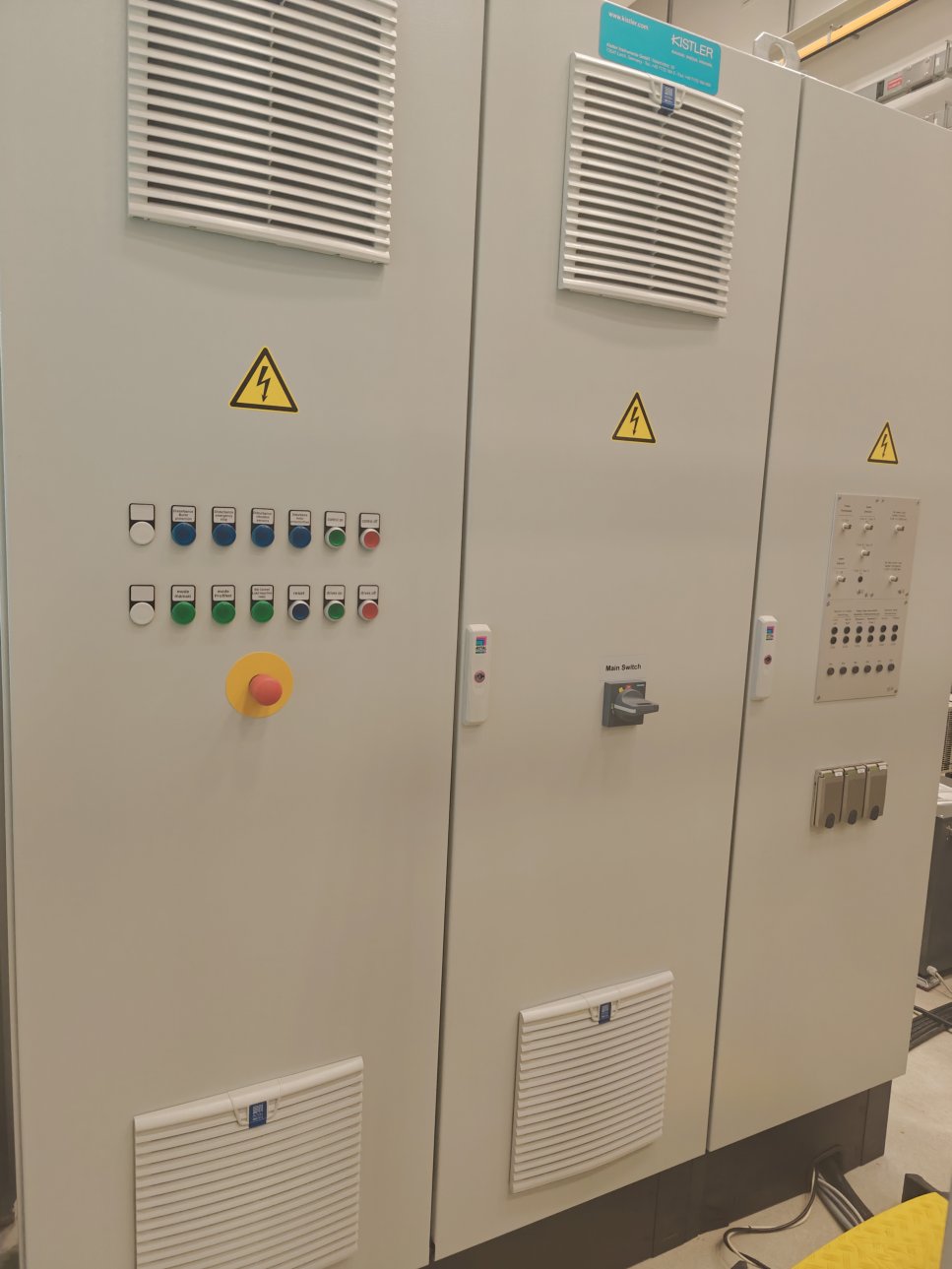Automotive/mobility – CBL with High Speed e-Powertrain Testbench
Summary of the Project
The project has been developing a high-speed e-Powertrain Testbench (Kistler-2) to support Challenge-Based Learning (CBL) for the Electrical Engineering (EE) and Applied Physics (AP) departments at TU/e. Recognizing the need for updated educational tools to address future challenges in automotive systems, this initiative aims to integrate Digital Twins (DT) and Artificial Intelligence (AI) into sustainable mobility and transportation education. The project involves designing a new testbench setup that allows students to work with advanced automotive hardware and software, engage in interdisciplinary teams, and solve real-world engineering problems related to energy efficiency, reliability, and circular economy.
Aim of the Project
The primary aim of this project has been to transform the educational experience by providing students with hands-on opportunities to work with cutting-edge automotive technologies. By developing the Kistler-2 testbench, the project seeks to enhance students' practical skills in system integration, control, and design of electric powertrains. The expected outcomes include the creation of new CBL courses, an assignment database with societal challenges, and the development of collaborative skills necessary for both industrial and academic careers. This initiative aligns with TU/e's 2030 strategy to promote life-long learning and prepare future engineers for the demands of electrification and digitalization in mobility. The project's success will be measured by the increased engagement in lab assignments, positive student feedback, and the effective use of the testbench in inter-departmental courses.
Results and learnings
For the 2024-25 period, a TA-PhD student is currently focused on integrating the Kistler-2 physical hardware with the lab environment in Flux 0.560. Simultaneously, the student is developing the software interface and exploring AI-based control techniques compatible with FPGAs.
Regarding CBL content, the focus is on creating an interdisciplinary MSc-level course as a "short" CBL. Given the typical 8-week duration of MSc courses, this pilot aims to identify which CBL elements can be effectively incorporated. The redesigned course is anticipated to launch in the 2025-2026 academic year for the EE, AT, and AI&ES master’s programs.
For industrial involvement in CBL, the project team collaborates with the Human Capital work package members of the Charging Energy Hub project (National Growth Fund-Round 3). The course designers are connected with industrial partners and other educational institutions, such as HAN and Fontys, that are focused on mobility-related topics.
Since June 2024, the Kistler-2 setup has physically arrived at the EPE research and education lab located in Flux 0.560. The setup is currently under development for a safe and reliable integration with the power distribution network of TUe. The setup is prepared to be in the line with the latest safety regulations in place.



